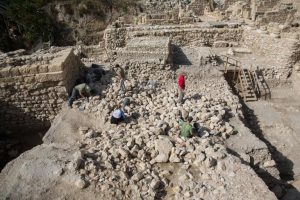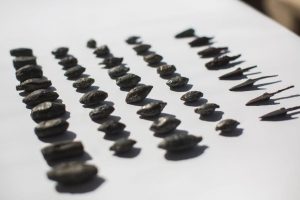Archaeologists in Jerusalem (Israel) have unearthed ruins of a fortress built 2000 years ago by Greeks. The ruins form relics of the Hellenistic Period of the region. The citadel, until now known only from texts, was at the heart of a bloody rebellion that eventually led to the expulsion of the Greeks. Archaeologist Doron Ben-Ami of the Israel Antiquities Authority who is leading the dig suggest that the ruins form a part of a fortress called the Acra.

Alexander the Great conquered Judea in the 4th century B.C., and his successors quarrelled over the spoils. Jerusalem, Judea’s capital, sided with Seleucid King Antioch III to expel an Egyptian garrison, and a grateful Antioch granted the Jews religious autonomy. For a century and a half, Greek culture and language flourished here.

Archaeologists exposed a Roman villa close to the Greek fortress. After the citadel’s destruction, the site became a residential area. Massive stones as well as smaller rock provided clues to the identity of the fortress. Later Roman houses and a Byzantine orchard covered the site. Under buildings that pottery and coins demonstrated to be from the early centuries B.C., the archaeologists found layers of what looked like random rubble that turned out to from a defensive slope protruding from a massive wall. Sling stones and arrowheads found in and around the Greek fortress attest to pitched battles fought by Greek and Jewish defenders against those Jews opposed to Hellenistic control of Jerusalem.

(after National Geographic)